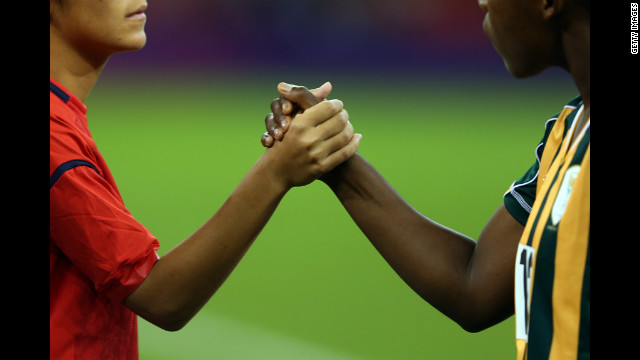The International Olympic Committee (IOC) has admitted it is content with the decision from FIFA not to punish the Japan women's football team after the head coach asked his team not to win in order to avoid playing their Olympic quarter-final in Glasgow. Japan, the reigning world champions, played out a 0-0 draw with South Africa in Cardiff which meant they finished behind Sweden in their group and will meet Brazil in the Welsh capital rather than travel all the way up to Scotland for their next match.Now, how in the world can the IOC sanction badminton for such behavior but allow it in football? The IOC explains:
Coach Norio Sasaki admitted to journalists after the game that he had instructed his players to keep the ball rather than press for a winner to avoid winning the group as he said "it was important for us not to move to Glasgow" because of the travel involved.
The coach even said he felt "sorry we couldn't show a respectable game" but took responsibility for the instructions to the team.
"This is a matter for the federation [FIFA] but the two cases [the Japanese football game and the badminton] are not the same," said the IOC director of communications, Mark Adams.This line of argument is problematic in several ways.
"There is no evidence that the athletes have acted on what the coach said in that instance.
"The federation have looked into it and say they cannot find a case to answer.
"This is all based on comments in Japanese by the coach and the crowd were unaware of the problem, unlike in the badminton where they obviously were aware that something was going on."
First, does the IOC really want to set a precedent that the crowds ability to detect behavior deemed questionable is the criteria for sanction? How would that be applied to doping policies?
Second, the fact that teams play tactically in knock-out stages in football is widely known and accepted, if not always celebrated. It is a part of the game. It would of course be OK for the IOC to hold football and badminton to different standards, but only if this was expressed as part of the norms of the games. The IOC's defense glosses over this reasonable explanation and has set the stage for perceptions of hypocrisy.
Now the IOC has a real scandal.

No comments:
Post a Comment